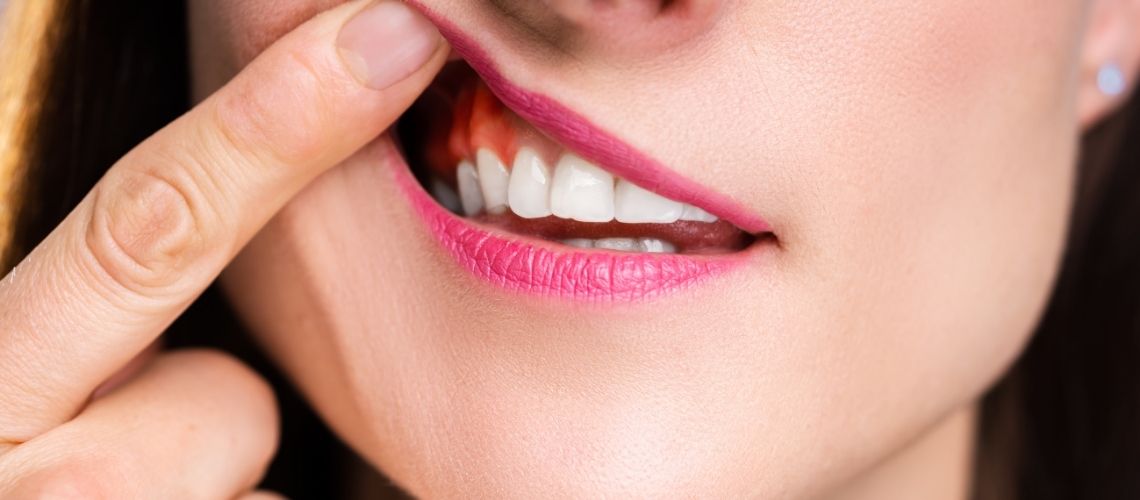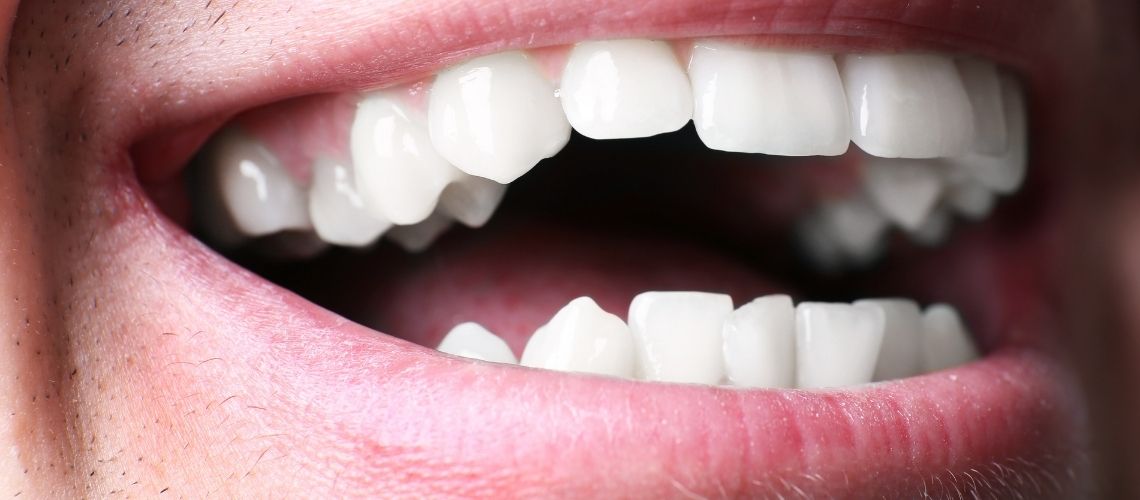Such pain is usually associated with conditions such as tooth decay or gum disease. There are some natural methods that can be applied at home for mild cases. For example, salt water rinses help to clean infected areas. A cold compress can also reduce swelling. However, these methods only offer temporary solutions. If it is very urgent and there is no dentist available, an injection can be given in the emergency room. If the pain does not subside afterward, a dentist should examine the patient.
Relieving Toothache with Salt Water Rinse
Salt water rinse is a simple and effective method that can be applied at home to manage toothache. Salt acts as a natural disinfectant. It is known for its ability to reduce inflammation and contribute to maintaining the bacterial balance in the mouth. It dissolves food particles that accumulate between the teeth and gums. This treatment is especially recommended for mild to moderate toothache. It can also support the healing process of small wounds in the gums. You can apply this method by following the steps below:
- Add half a teaspoon of salt to warm water.
- Stir the mixture until it is completely dissolved.
- Rinse your mouth with the prepared salt water.
This simple process plays an important role in relieving toothache and helps to maintain oral health.
Reducing Toothache with Cold Compress
Applying a cold compress after any blow to the teeth can be beneficial. Cold can constrict the blood vessels in the affected area, reducing pain. For effective use of a cold compress:
- Wrap an ice pack in a clean towel.
- Apply this package to the painful tooth area for 20 minutes.
- Repeat the procedure every few hours, depending on the severity of the pain.
A cold compress only offers a temporary solution, and for long-term dental health issues, professional advice should definitely be sought.
Relieving Toothache with Peppermint Tea Bags
Peppermint tea bags provide a natural and effective solution for toothache and gum sensitivity. This method reduces both inflammation and pain. This application soothes sensitivity in the gums and can temporarily reduce pain.
- Let a peppermint tea bag rest for a few minutes before using it.
- Apply the slightly warm bag to the painful area.
Alternatively, these bags can also be used as a cold compress. For cold treatment:
- Leave the tea bag in the freezer for a few minutes.
- Apply the cold bag directly to the painful tooth.
Thanks to the antiseptic properties of peppermint tea, this method supports gum health.
The Effects of Garlic on Toothache
Garlic is among the effective natural remedies for toothache. The allicin compound in garlic offers strong antibacterial properties and fights infections that cause toothache. Garlic application can provide relief in the painful tooth area. There are two ways to use garlic to relieve pain:
- Crush a clove of garlic to make a paste and apply it directly to the painful tooth.
- Slowly chew on a fresh clove of garlic so that it works directly on the affected area.
The Effects of Vanilla Extract on Toothache
Vanilla extract is one of the natural methods that can be used in the treatment of toothache. Its alcohol content creates a numbing effect on painful teeth. Additionally, its strong antioxidant properties act as an infection-fighting healer. Applying vanilla extract is quite simple:
- Drip a little vanilla extract on your finger or a clean cotton ball.
- Apply it directly to the painful tooth or gum several times a day.
This method helps to relieve toothache with its pain-relieving and antioxidant effects.
Treating Toothache with Clove Oil
Clove oil contains eugenol, a natural antiseptic that reduces inflammation and relieves pain. Clove oil should be diluted with a carrier oil for pain relief. Sunflower oil or jojoba oil is usually preferred for this process.
- Dilution Ratio: Add about 15 drops of clove oil to each ounce of carrier oil.
- Application Method: Apply the diluted oil to a cotton ball and apply it to the painful area several times a day.
Additionally, you can mix clove oil with water and rinse around the painful tooth. This method also provides quick relief from pain and infection.
The Effects of Guava Leaves on Toothache
Guava leaves are among the effective natural remedies for relieving toothache. These leaves help to reduce pain and swelling thanks to their anti-inflammatory properties. Additionally, their strong antimicrobial properties provide protection against harmful bacteria in the mouth. There are two ways to make the most of guava leaves:
- Chew directly on fresh leaves.
- Add crushed leaves to boiling water and use the obtained mixture as a mouthwash.
These methods are ideal for temporarily relieving toothache.
Relieving Toothache with Wheatgrass
Wheatgrass is among the effective natural remedies for relieving toothache. Thanks to its high chlorophyll content, this plant has strong antioxidant and anti-inflammatory properties. These properties can reduce inflammation in the gums and relieve pain. Additionally, wheatgrass supports the immune system and provides protection against bacteria and infections in the mouth. There are two ways to use wheatgrass:
- Drink freshly squeezed wheatgrass juice daily.
- Use wheatgrass juice as a mouthwash to support oral health.
Ways to Relieve Toothache with Thyme
Thyme is known for its strong antibacterial properties and stands out among natural treatment methods. Thyme essential oil can be used to relieve pain in people with toothache. This oil is effective in fighting bacteria that cause tooth decay. Its use is quite simple:
- Mix thyme essential oil with a carrier oil.
- Apply the mixture directly to the painful tooth or gum.
Alternatively, you can mix a drop of thyme oil in water and use it as a mouthwash. This application helps to reduce the bacterial load in the mouth.
Herbal Remedies that Relieve Toothache
This tropical plant used to relieve toothache contains anti-inflammatory properties and the numbing compound spilanthol. When chewed, it provides quick relief for painful teeth. However, the use of this plant may not be suitable for everyone. It is especially important to avoid this plant under certain conditions:
- If you are allergic to the daisy family
- If you consume alcohol
- If you are taking diuretic drugs
- If you are undergoing treatment for prostate cancer
- If you are pregnant
Under these conditions, the use of this plant may cause health problems.
Situations When You Should Consult a Dentist
A visit to the dentist is inevitable when there is a toothache.
You should especially call your dentist immediately if you have the following symptoms:
- Fever may indicate that the infection is spreading throughout the body.
- Difficulty breathing or swallowing may be a sign of an emergency.
- General pain that lasts for one or two days.
- Swelling indicates the presence of an infected area.
- Pain when biting may indicate damage to the tooth or its surroundings.
- Abnormal redness of the gums.
- Bad taste or pus discharge indicates an infection.
These symptoms indicate that you need to consult your dentist.
Frequently Asked Questions
What stops toothache the quickest?
The quickest way to stop toothache is usually applying a cold compress. Placing an ice pack on the aching tooth or jaw can reduce swelling and numb the nerve endings, relieving pain. Additionally, clove oil applied directly to the tooth can provide immediate relief. The eugenol in clove oil acts as a natural painkiller. However, these are temporary solutions, so visiting a dentist is the healthiest step.
What causes throbbing tooth pain?
Throbbing tooth pain can be caused by several factors. Teeth grinding or clenching often leads to this type of pain. Gum diseases can also cause throbbing pain. Overstraining the jaw muscles can result in similar complaints. These conditions lead to constant irritation of the tooth and surrounding tissues, causing pain. Therefore, throbbing pain is usually considered a sign of such dental issues.
Why does toothache get worse at night?
Toothache often worsens at night because hormonal changes in the body increase blood pressure, causing blood vessels to expand. This vascular expansion makes the pain more intense, especially when resting. As a result, toothache tends to be more pronounced at night.
Is lemon good for toothache?
Lemon is acidic and using it for toothache can irritate the gums, potentially causing more pain. Home remedies may provide temporary relief, but it is advisable to see a dentist if you have a toothache.
How do you stop toothache that keeps you awake?
Several home remedies can help relieve toothache. First, gargling with warm salt water can reduce pain caused by infections. Applying a cold compress to the affected area can temporarily reduce swelling and pain. Alternatively, a warm compress can relax muscles and provide relief. If painkillers are used, they should be taken under a doctor’s guidance. Flossing can help remove food particles that may be causing the pain. However, these methods do not provide a permanent solution, and the cause of the pain should be identified and treated by a dentist.
How long can toothache last?
Toothache intensity usually decreases within the first 48 hours. On average, the pain can last for 10 days. In some cases, it may take up to 3 weeks for complete healing. The duration of toothache varies from person to person, and it is expected to subside within 3 weeks. During this time, it is normal for the pain to gradually lessen.
Does brushing teeth stop toothache?
Brushing does not stop toothache because the root cause is usually a problem within the tooth structure. Conditions like cavities or gum inflammation may be the main source of the pain. Brushing may provide temporary relief, but if the pain persists, it indicates a serious issue with the tooth.
Why is olive oil good for toothache?
Olives can help relieve toothache due to their natural oils. Rich in omega fatty acids, olives can reduce pain and inflammation. These oils soothe nerve endings in the mouth, helping to reduce pain. Additionally, the antioxidants in olives contribute to preventing gum diseases, which can be the source of the pain. Therefore, eating olives can be an alternative method to relieve toothache.
Does smoking help with toothache?
Smoking does not relieve toothache and is harmful to health. Therefore, smoking is not a suitable method for pain control and damages dental health.
Is vinegar good for toothache?
Vinegar is acidic and using it for toothache can irritate the gums, potentially worsening the pain. Toothache requires professional treatment, so it is important to seek expert advice rather than relying on temporary solutions.

Dentist Handan Nohutcuoğlu graduated from Ege University Faculty of Dentistry in 1987. He has gained experience in various fields by working in many dental polyclinics throughout his career, combining his knowledge and experience. He continues to work at Hollywood Dental at the moment.









